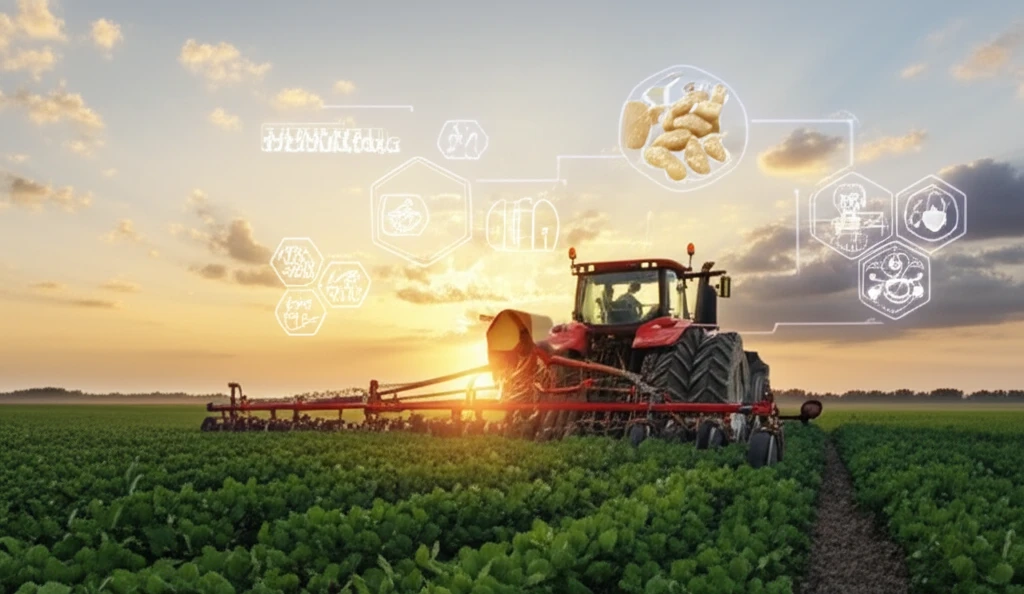
Sustainable Farming: How Biodiesel and Precision Planting Can Save Our Soil
"Discover the surprising ways biodiesel from peanuts and precision planting techniques can revolutionize agriculture, making it both eco-friendly and efficient."
In an era where sustainability is not just a buzzword but a necessity, the agricultural sector is under increasing pressure to adopt eco-friendly practices. Traditional farming methods often lead to soil degradation, high energy consumption, and environmental pollution. However, innovative approaches are emerging that promise to revolutionize agriculture, making it both sustainable and efficient.
One such approach involves the use of biodiesel, specifically biodiesel derived from peanuts, combined with precision planting techniques. This method not only reduces reliance on fossil fuels but also enhances soil health and optimizes resource utilization. The integration of these practices represents a significant step towards creating a more sustainable agricultural system.
This article explores the benefits of using peanut biodiesel and precision planting in agriculture, drawing on research that highlights the positive impacts on soil, energy consumption, and crop yields. We will delve into how these methods work, why they are important, and what the future holds for sustainable farming.
What is Precision Planting and Why Does it Matter?

Precision planting is a modern agricultural technique that optimizes the placement of seeds in the soil. Unlike traditional methods, which often involve broadcasting seeds across a field, precision planting uses advanced technology to ensure each seed is planted at the optimal depth and spacing. This targeted approach maximizes the chances of successful germination and growth, leading to higher crop yields.
- Optimized Seed Placement: Ensures each seed has the best chance to grow, reducing waste and increasing yield.
- Reduced Resource Use: Minimizes the need for excessive fertilizers and water, promoting environmental sustainability.
- Improved Soil Health: Reduces soil compaction and erosion by minimizing the need for multiple passes across the field.
- Cost-Effective: While the initial investment in precision planting equipment may be higher, the long-term benefits of increased yield and reduced resource use make it a cost-effective solution.
The Future of Farming is Sustainable
The integration of peanut biodiesel and precision planting represents a significant step towards a more sustainable and efficient agricultural system. By embracing these innovative practices, farmers can reduce their environmental impact, improve soil health, and increase crop yields. As we look to the future, it is clear that sustainable farming is not just a trend but a necessity for ensuring food security and environmental stewardship.
